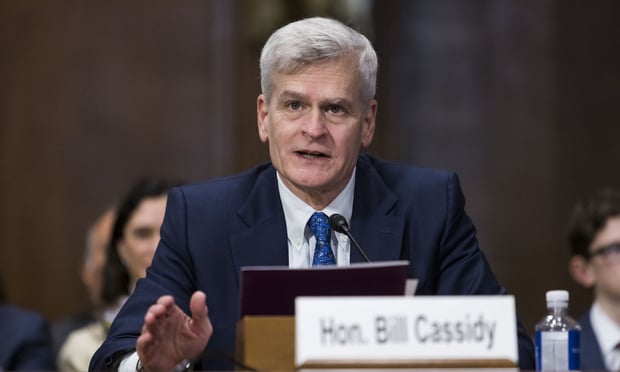Kent Mason opened his testimony at the public hearing for the Department of Labor’s proposed fiduciary rule saying the Department has the opportunity to “do a lot of good.”
He then summarily said that no financial service institution he has spoken with is willing to provide retirement services under the rule as it is proposed.
Read all our coverage on the DOL proposed fiduciary rule
Mason, an attorney with Davis and Harman LLP and an active advocate on behalf of brokerage industry interests throughout the debate over Labor’s proposal, came to the hearing representing only his own perspective.
Specifically, he said no institution he has spoken with is willing to work under the proposal’s Best Interest Contract Exemption.
That provision lays out specific requirements advisors would have to adhere to if they were to receive commission compensation from investments recommended to IRA accounts and 401(k) plans.
Providers are already preparing to walk away from smaller accounts, both in the retail and workplace space, rather than struggle to comply with the BICE, said Harmon, referencing what “dozens” of financial institutions are telling him.
Read: The DOL fiduciary rule: Reactions from 4 industry associations
“In the fall of 2016, 20 million plus IRA account holders are going to be told they don’t have access to financial professional,” he said.
Instead of struggling to comply with the proposal, financial institutions are instead planning to work with customers on non-retirement accounts.
One provider has told Mason they are already planning to withdraw from the small business market, he said.
“This thing needs radical surgery,” professed Mason.
The eight months within which the DOL is expecting industry to comply with the rule is simply not a realistic expectation to Mason, who said three years would be a more adequate transition period.
Read: DOL fiduciary rule out by May 2016
But many of his clients and industry sources say no matter what changes are made to the proposal, they are planning to shift out of retirement and into non-retirement products.
The proposal’s so-called seller’s exemption, which says advisors and providers to plans with more than 100 participants will not be required to act as fiduciaries, effectively means that any inquiries from smaller sponsors will trigger fiduciary status.
To Mason, that means that no one providing retirement services can interview with a small business.
Read: Fitch warns of potential disruptions from DOl fiduciary rule
Retirement providers will be “the only business in America that can’t market their services,” he said.
Two simplified rules are needed to correct the issue, said Mason. One is a simple contract saying advisors are acting in clients’ best interests, the other new compensation disclosure requirements.
The 5,000 pages of comments the Department of Labor received suggest to Mason that the chance of Labor getting the rule right in one final regulation is “infinitesimal.”
“You need to re-propose” a new rule, he insisted.
That suggestion, along with most of Mason’s testimony, sparked a contentious question-and-answer session, all of which was focused on Mason’s testimony and not that of the two other witnesses on the panel.
“We ultimately are very interested in figuring out how to fix operational problems” in the proposal, said Timothy Hauser, deputy assistant for program operations at DOL and head of the four-person panel directing the hearing.
“But to prejudge and say we need a new notice (rule making period) and comment now is premature,” he said.
“When I hear that nobody in the industry is going to be able to comply with the rule, I have to wonder what they are being told,” he added.
Hauser then brought attention to language in a Greenwald and Associates survey of financial institutions that was commissioned by Davis and Harman, Mason’s employer.
Hauser quoted language in the survey, which said the DOL’s rule is expected “to prohibit retirement plan providers and the advisors who sell retirement plans from assisting employers in the selection and monitoring of funds” in retirement plans.
“Does that not seem a little slanted,” asked Hauser, incredulously. “Can you point to language in the proposal that says that?”
Mason said the description in the Greenwald survey of the DOL’s rule was “100 percent correct.”
“We quite plainly are not trying to prohibit advice,” said Hauser.
The two also wrestled with the question of “level fees,” which Mason says the proposal insists via the Best Interest Contract Exemption.
BICE is too unclear to allow for more expensive or proprietary products to be recommended, said Mason.
The BICE provision clearly “does not mandate level fee compensation,” countered Hauser.
Mason insisted that contract, as proposed, poses far too much liability in terms of states class action laws. That alone will force providers from the market.
“Just the possibility of class action claims is enough to make some walk away,” asked Hauser.
“For some, yes,” answered Mason. “Not an insignificant proportion.”
“So they say they are willing to tell their customers they are adhering to a best interest standard, but not if it is going to be enforceable by the customer?” asked Hauser, again incredulous.
“Some are saying that,” answered Mason.
Mason gave a specific example of how the rule’s education carveout remains too ambiguous for sponsors to comply with.
He offered an example of a participant seeking help from a human resources staff member with their plan. Mason claimed that instance would trigger fiduciary requirements on the HR employee and sponsor.
Hauser and the three other DOL representatives quickly jumped in to correct Mason.
“No it would not. There is a specific provision that carves that out,” insisted Hauser.
“That is wrong,” said Mason, unwilling to budge. “I am right about this.”
© Touchpoint Markets, All Rights Reserved. Request academic re-use from www.copyright.com. All other uses, submit a request to [email protected]. For more inforrmation visit Asset & Logo Licensing.







